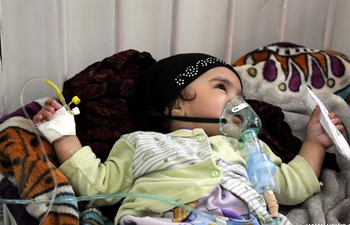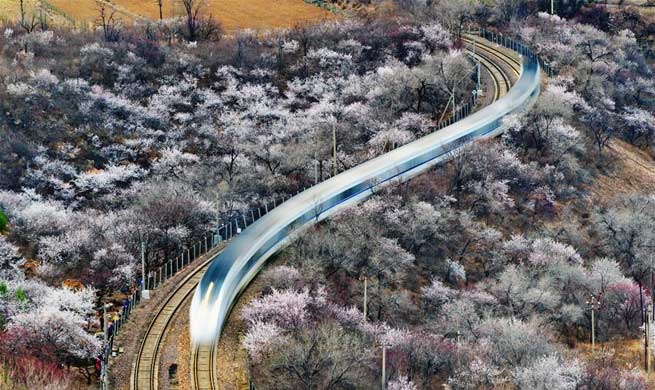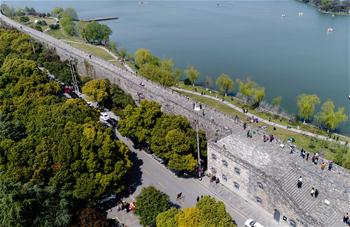SAN FRANCISCO, April 2 (Xinhua) -- A new study suggests that when Coffea arabica plants were subjected to even short-duration heat waves, they became unable to produce flowers and fruit, meaning there would be no coffee beans and no coffee to drink.
By investigating how leaf age and heat duration affected Coffea arabica's recovery from heat stress during greenhouse testing, researchers with the Oregon State University (OSU) College of Forestry found that the younger, "expanding" leaves were particularly slow to recover compared to mature leaves, and that none of the plants that endured the simulated heat waves produced any flowers or fruit.
Coffea arabica, as the globe's dominant coffee-plant species, grows on 80 countries in four continents in the tropics, accounting for 65 percent of the commercial production of the nearly 20 billion pounds, or 9.08 billion kilograms, of coffee consumed globally each year.
"This emphasizes how sensitive Coffea arabica is to temperature," Danielle Marias, a plant physiologist with OSU's Department of Forest Ecosystems and Society and lead author of a paper published in Ecology and Evolution, said about the findings. "No flowering means no reproduction which means no beans, and that could be devastating for a coffee farmer facing crop failure."
In the study, Coffea arabica plants were exposed to heat that produced leaf temperatures of a little over 120 degrees Fahrenheit, or 47 degrees Celsius, for either 45 or 90 minutes. That leaf temperature, more than the surrounding air temperature, Marias said, is a realistic result of global climate change.
Expanding leaves subjected to the 90-minute treatment took the longest to recover physiologically as measured by photosynthesis; chlorophyll fluorescence, an indicator of photosynthetic energy conversion; and the presence of nonstructural carbohydrates, which include starch and free sugars involved in growth, reproduction and other functions.
"Heat is very stressful to the plants and is often associated with drought," she was quoted as saying in a news release from OSU. "However, in regions where coffee is grown, it may not just be hotter and drier, it could be hotter and wetter, so in this research we wanted to isolate the effects of heat."
Regardless of leaf age, the longer heat treatment resulted in decreased water-use efficiency, which could also worsen the effects of heat stress, particularly during drought.
"In both treatments, photosynthesis of expanding leaves recovered more slowly than in mature leaves, and stomatal conductance of expanding leaves was reduced in both heat treatments," Marias said. "Based on the leaf energy balance model, the inhibited stomatal conductance reduces evaporative cooling of leaves, which could further increase leaf temperatures, exacerbating the aftereffects of heat stress under both full and partial sunlight conditions, where C. arabica is often grown."


















